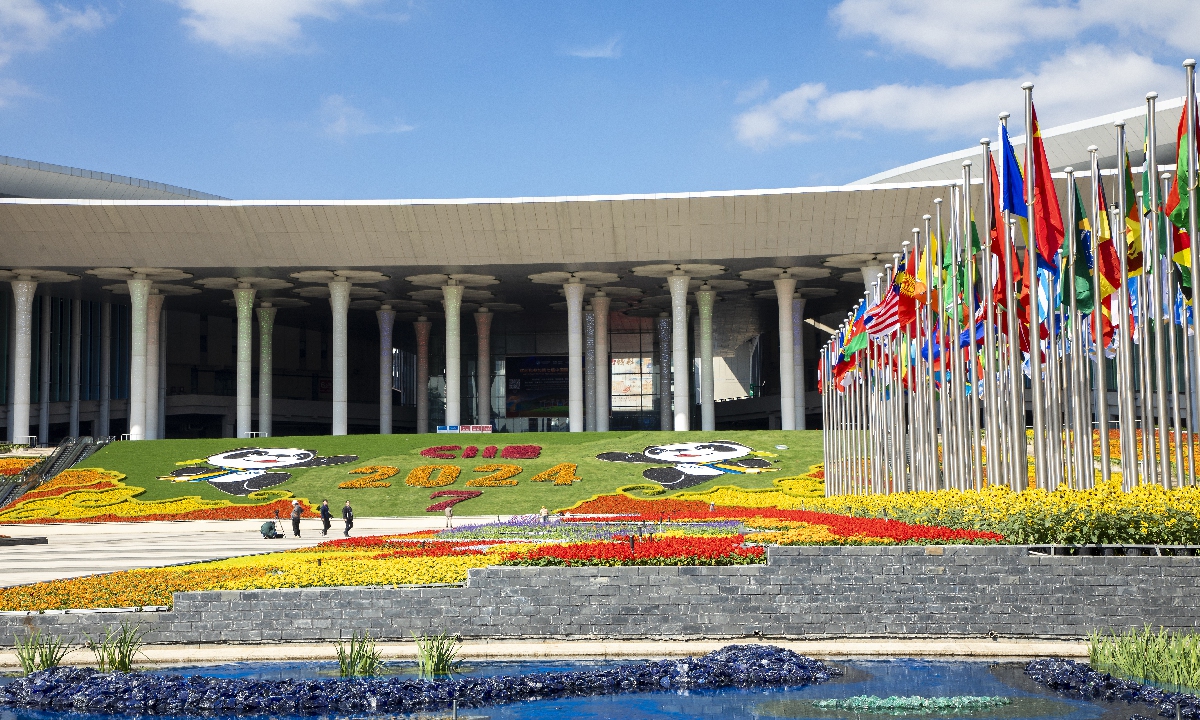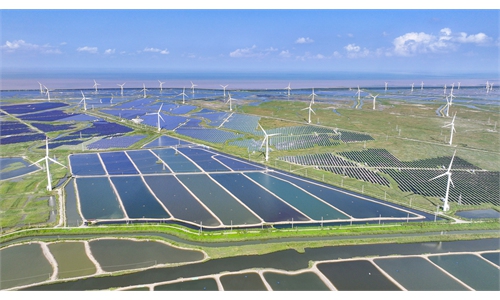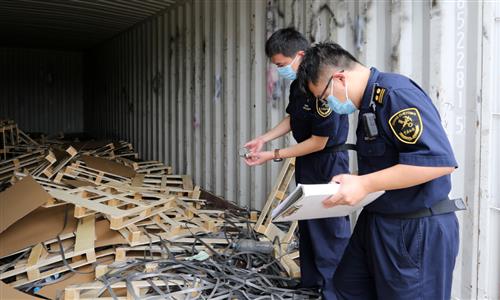
The 7th China International Import Expo will take place at the National Exhibition and Convention Center in Shanghai from November 5 to 10. The venue has been fully refreshed, inside and out, to warmly welcome guests from around the world. Photo: CFP
Amid a complex and rapidly changing global economic landscape, the 7th China International Import Expo (CIIE) will kick off in Shanghai on Tuesday, once again showcasing China’s commitment to high-level opening-up to the world.
This year’s CIIE boasts an impressive exhibition area of more than 360,000 square meters, featuring 3,496 exhibitors from 129 countries and regions. Both the number of participating countries and regions and exhibitors have surpassed last year’s totals. Notably, 297 Fortune Global 500 companies and industry leaders will be in attendance, setting a new record for the expo.
China’s persistent hosting of the expo over the years carries significant implications, offering a platform for global companies to showcase their products and engage in communication with other industry players. The expo promotes international trade and investment, aiding the global economic recovery, while also sending a positive message that highlights China’s commitment to advancing economic globalization and enhancing trade cooperation with countries and regions around the world.
At the same time, the expo contributes to the high-quality development of the Chinese economy. By introducing advanced foreign technologies and management practices, it assists domestic industrial upgrading and innovation, boosting Chinese industries’ international competitiveness. Moreover, it offers many other countries a chance to deepen mutual understanding and cooperation.
Despite attempts by certain Western politicians to tarnish China’s business environment, overseas companies remain enthusiastic about participating in the expo, with many multinational giants having never missed a session.
Actions speak louder than words. China has consistently worked to optimize its business environment and attract foreign investment. In recent years, policies have been implemented to lower barriers to foreign investment, strengthen intellectual property protection and enhance services for foreign investors, yielding significant results.
Many foreign companies have enjoyed strong performances and promising growth prospects in the market. In contrast with certain Western media outlets' hype about so-called “capital flight,” companies have continued to ratchet up their investments and expand their operations in China.
For instance, Intel recently announced an increase of $300 million in registered capital for its packaging and testing facility in Chengdu, Southwest China’s Sichuan Province, while Tesla's Megapack factory in Shanghai is currently under construction. These developments clearly demonstrate the attractiveness of the Chinese market and the confidence of foreign companies in operating in China.
Lately, the China Council for the Promotion of International Trade conducted a survey of more than 400 key foreign-funded enterprises. Among the respondents, about 65 percent reported that the foreign investment policies introduced by China’s central and local governments have provided them with significant support.
The voices of the foreign media and Western politicians criticizing China's business environment often carry skewed ideological prejudices. We should remain somber-minded and not to be misled by their narratives.
Many foreign-funded enterprises have achieved remarkable success and development in the Chinese market. As one of the largest markets in the world, China offers vast consumption potential and growth opportunities. For multinational companies, the Chinese market is not only a key sales region but also a critical production base and research and development center.
However, Chinese companies operating abroad encounter a very different situation in the so-called market economies of Europe and the US. Chinese electric
vehicle brands have been hit with protectionist tariffs in both the US and the EU.
These phenomena reflect the complex attitudes of Europe and the US toward Chinese companies. Some politicians and media outlets in the West seek to discredit and undermine Chinese firms for ideological and political reasons. Meanwhile, certain Western companies are concerned that competition from Chinese firms may threaten their market position.
Chinese companies should stay clear-minded and confident as they actively navigate various challenges and opportunities. By strengthening their core competitiveness and enhancing risk management, they can achieve robust and sustainable growth in overseas markets despite the headwinds.
The author is an associate research fellow at the Beijing Academy of Social Sciences. bizopinion@globaltimes.com.cn



